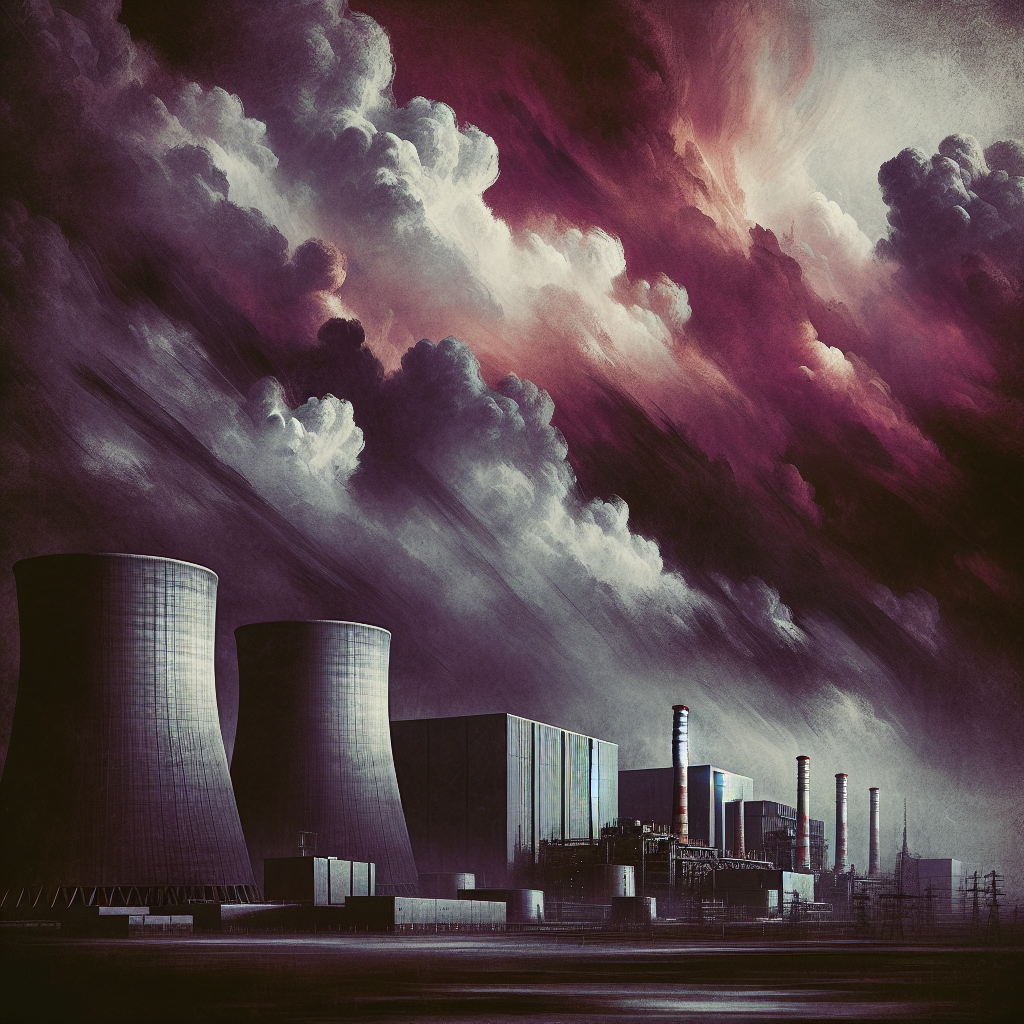Navigating the Perils of Nuclear Deterrence: A Call for Collective Responsibility
Introduction
In an era defined by rapid technological advancement and increasing global instability, the specter of nuclear deterrence looms large. The notion that the possession of nuclear weapons is essential for national security is a timeworn idea that demands critical examination. As articulated in a recent discussion, the risks embedded in nuclear armament and the urgent need for diplomatic collaboration cannot be overlooked. The context of our discussion reveals that the consequences of a nuclear miscalculation could lead to catastrophic loss of life; thus, we must explore alternatives that transcend the conventional understanding of deterrence.
The Illusion of Security
The concept of nuclear deterrence is predicated on the assumption that the threat of mutual destruction will compel nations to adhere to a non-aggressive stance. However, this assumption is fraught with peril. The assertion that "the odds of a non-testing situation going awry are certainly higher than zero" articulates a critical truth: even a minor miscalculation could lead to devastating consequences, and reliance on nuclear weapons creates a dangerously precarious balance.
For millions of lives hanging in the balance, the idea that nuclear weapons are the ultimate guarantors of security is ironically overshadowed by their inherent unpredictability. We must question whether the idea of deterrence is not merely an illusion, but rather a ticking time bomb. When nations with unstable governments or totalitarian regimes possess the power to launch nuclear weapons, the risks multiply exponentially.
The Machinery of Death
Nuclear weapons, often treated as symbols of national pride and power, are in reality complex machines with the potential for catastrophic malfunction. The phrase "there's no such thing as a machine that doesn't malfunction sooner or later" eloquently captures the inherent risks of entrusting our security to such technology. Human error, mechanical failure, or unforeseen circumstances could easily precipitate an unintended launch.
What is particularly disconcerting is the casual dismissal of these risks by leaders who may underestimate the consequences of their decisions. Moreover, the idea that "supernatural powers" derived from these weapons can assure safety is a dangerous narrative. It minimizes the human element involved in decision-making—individuals who may be influenced by irrational fears, political pressures, or misinformation. The very machines intended to ensure our security may ultimately serve as our undoing.
The Path to Diplomacy
The pathway towards a safer global environment hinges on international cooperation. The statement, "it's possible to have nuclear deterrence without actual weapons," hints at the potential to engage in dialogue, diplomacy, and disarmament initiatives. History is replete with instances where dialogue has borne fruit, yet the entrenched attitudes surrounding nuclear weapons often stifle these opportunities for peace.
The ongoing challenge remains: how do we persuade leaders, particularly in authoritarian regimes, that disarmament can yield security rather than vulnerability? It is essential to foster an environment in which nations can trust each other enough to reconsider their nuclear arsenals. This requires a commitment to transparency, as well as a willingness to engage in meaningful conversations that extend beyond mere political posturing.
The Role of Global Challenges
Global warming presents a unique opportunity to rethink our approach to security. The observation that "solving global warming will help people see that if they work together, there could be a good outcome" is particularly poignant. As the world grapples with climate change, nations are compelled to recognize that collaboration is not only beneficial but essential for survival.
In the face of widespread environmental crises, leaders may begin to realize that the pressing nature of climate issues can serve as a unifying force. Such a shift in perspective may encourage a reevaluation of the resources allocated to nuclear armament and the exploration of cooperative strategies that prioritize human welfare over military might.
Embracing the Dark Side
Understanding the duality of technology is crucial in navigating the modern landscape. While technologies like nuclear energy have the potential to yield positive outcomes, they also carry inherent risks. This duality is aptly captured by the insight that "there was a good outcome from the telephone" and "there was a dark side."
As we continue to develop and innovate, it is imperative that we also develop our capacity to manage the darker aspects of our creations. This involves robust regulatory frameworks, ethical considerations in technological development, and comprehensive education around the implications of such power. By embracing the complexities of technology, we can forge a path that acknowledges its potential for both good and ill.
Conclusion: A Call to Action
The ongoing discourse surrounding nuclear deterrence necessitates a reevaluation of our values and priorities. Rather than adhering to outdated notions of security predicated on fear and destruction, we must champion a future characterized by cooperation, dialogue, and innovation. The alternative—a world in which nuclear weapons serve as the arbiters of peace—presents an untenable risk.
Governments, thought leaders, and citizens alike must engage in a concerted effort to promote disarmament and foster relationships built on trust. In doing so, we can usher in a new epoch of security that transcends the outdated paradigms of the past.
For those who seek more comprehensive insights into these issues, the following resources may offer valuable perspectives:
Source: https://www.youtube.com/watch?v=1RWBt0CsngI
Related News
- The Ever-Present Threat: Analyzing the Odds of Nuclear Deterrence Failure
- The Global Dilemma: Nuclear Weapon Proliferation and its Containment
- Shifting Paradigms in Nuclear Deterrence: A New Era of Strategic Complexity
- The Transformative Impact of Nuclear Energy on Warfare
- The Global Fallout: Analyzing the Dire Consequences of a Hypothetical India-Pakistan Nuclear War
